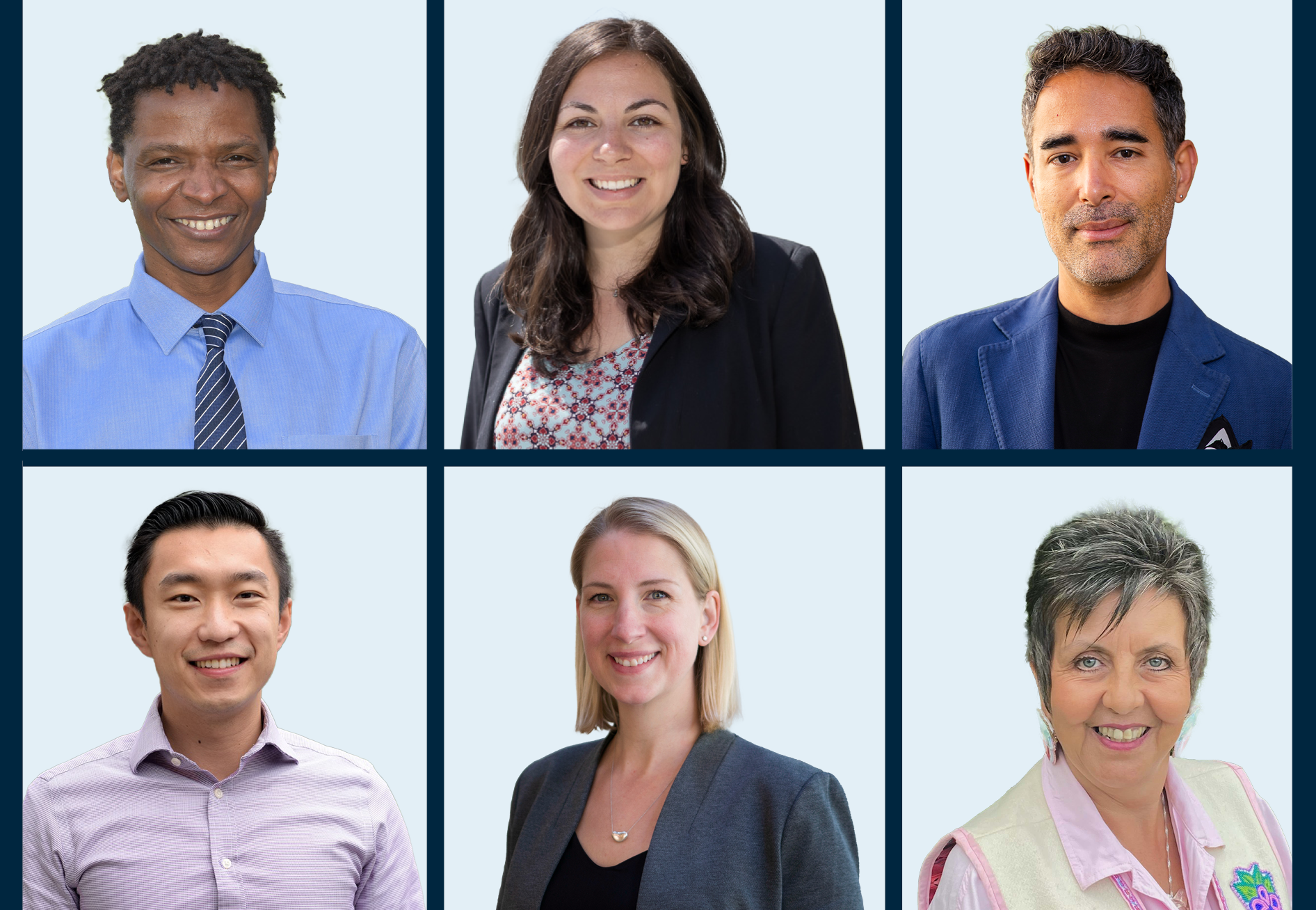Dr. Shannon Dames encourages others to find their “Roots to Thrive”
27 November 2019

Research and knowledge translation are powerful tools for creating meaningful change — especially when they are undertaken by passionate researchers and informed by lived experience. Meet Dr. Shannon Dames, Vancouver Island University School of Nursing professor and researcher. Based on her research and personal experience with burnout in health care, she has developed a curriculum for health care workers to help them cultivate factors that mitigate stress and promote thriving. Dr. Dames and Roots to Thrive were supported by a 2018 MSFHR Reach award.
For more KT conversations visit KT Encounters.
My interest in what makes humans thrive emerged from my experience as a caregiver on the brink of burnout. Health-care culture, the roles I played, and the masks I wore within it, were making me sick. Health-care workers experience high rates of stress leave and attrition due to unaddressed mental health needs. While some providers leave the workplace because of burnout, many stay, which compounds the issue and contributes to toxic workplaces and higher patient mortality rates.
“Right” felt wrong
Each day, I would put on the culturally prescribed display: I’d wear the “right” clothes, say the “right” things, and achieve the “right” goals. This way of being worked for a time, enabling me to blend into the system that provided me with identity and livelihood. What I did not realize was that to assimilate in these ways, I had to quiet my inner alarm bells, turning away from the compass that kept me connecting to who I am and what was meaningful to me.
Over time, I became numb, not able to feel much at all, except a lingering, haunting feeling that something wasn’t right — that I wasn’t safe. These feelings presented as generalized anxiety. When I began talking about it, I came to find out that I wasn’t alone. These realizations became the catalyst for my ongoing desire to research and promote the core factors that promote human flourishing.
Most of us in the West are conditioned to rely on cognitive processes, analyzing our way through challenges — often ignoring, discounting, or altogether dissociating from our emotions and deeper ways of knowing. By suppressing what we feel (emotions, bodily sensations, etc.), we are at risk of succumbing to a variety of impulses, projections and addictions. In this culture that puts so much focus on ideals, we spend a good deal of our lives perfecting our performances and pushing down our ”real” selves to ensure that we get our primary needs met — the need to be accepted, to belong, to feel loved. As a result, shame festers, building to where we cannot contain it, spilling hostility onto others in all sorts of subtle and not-so-subtle ways.
Forging a new path
A small-but-mighty group of humans, including caregivers, and curriculum, organizational, and administrative experts identified a need among caregivers amid the rising tide of professional burnout and moral injury in health care. We set out to forge a new path to challenge the traditional resiliency landscape. Supported by a 2018 MSFHR Reach award, we co-developed a program called Roots to Thrive, which guides participants down a path from reactivity to resilience. It is based on research that shows that self-compassion — defined as unconditional positive regard turned inward1 — is a significant contributor to healthy communities of practice, and promotes the ability to manage workplace stressors.
Based on science, the path is research informed and provides the legitimacy necessary to cultivate buy-in and trust. Once the scientific path was well established, we then closed that door and forged a new path, taking an experiential journey anchored on connection and felt sense.
We developed Roots to Thrive as an open-access program that was built to fill a gap in resiliency training program offerings. We spread the course over five to six weeks with two full days, three virtual sessions, and a final wrap-up session. We selected the tools in the course based on research results, aiming to provide evidence-informed tools that promote inner and outer reconciliation via sense of coherence and congruence (the two primary factors that enable us to thrive).
Forging a new path to resiliency requires an honest look at the soil in which we are planted. We feel we need to compare and compete to earn our place in this individualistic culture. We assimilate at the cost of ourselves and then wonder why we spend so much time feeling anxious and/or depressed. From a framework of scarcity and separation, we lose the magic that comes from inner and outer connection. We know no other way.
Knocking at the door
While we in the West typically knock at the door of science to find knowledge and understanding, we must find another way — one that enables us to step out of the cultural mindsets of scarcity and threat so we can be nurtured from a place of connection and abundance.
Developing our ”Roots to Thrive” is about choosing to walk through another door, finding another way of being — one far more conducive to thriving. We can build a community where we feel safe to express authentic feelings and responses. In this community, we can feel seen and be celebrated for who we are. Being seen and accepted for who we are enables us to release the shame inherent in the perfectionistic/idealized performances. Addressing our inner suffering/separation prevents us from subconscious projections that inadvertently hurt ourselves and others.
Personally speaking, going through this experiential door has shifted how I move in the world, how I show up, and how I connect inwardly and outwardly. Learning, sharing, and growing with others on the journey has become my greatest pleasure. As a result of our shifting, there are inspiring powerful ripple effects within our families, our work relationships, and across our communities.
Roots to Thrive is about removing the barriers — conditioning — that separates us from our essence and from connecting to others and to the larger natural world. It’s about remembering our wholeness, and from this wholeness, we can provide the inner and outer unconditional positive regard necessary to thrive. As a research-informed program, we continue to pilot the program within a program of research. This enables us to evolve and adapt based on the results, ensuring it remains relevant and impactful.
It is important to note that personal resilience is one part of the equation. The other equally important part is the outer work: contextual, cultural, and system resilience. We cannot expect to bloom where we are planted if the soil we find ourselves in fails to provide the primary human requirements that enable us to flourish. While Roots to Thrive is focused on the inner work — personal resilience — once we tend to resilience on the personal level, we are far more likely to feel empowered and resourced to enact the changes necessary on the contextual level.
References
[1] Dames, S (2018). Cultivating the Roots of Caregivers: An Evidence-Based Approach to Minimize Stress and Maximize Thriving. Retrieved from https://ba.viu.ca/sites/default/files/roots_to_thrive_-_may_25.pdf





